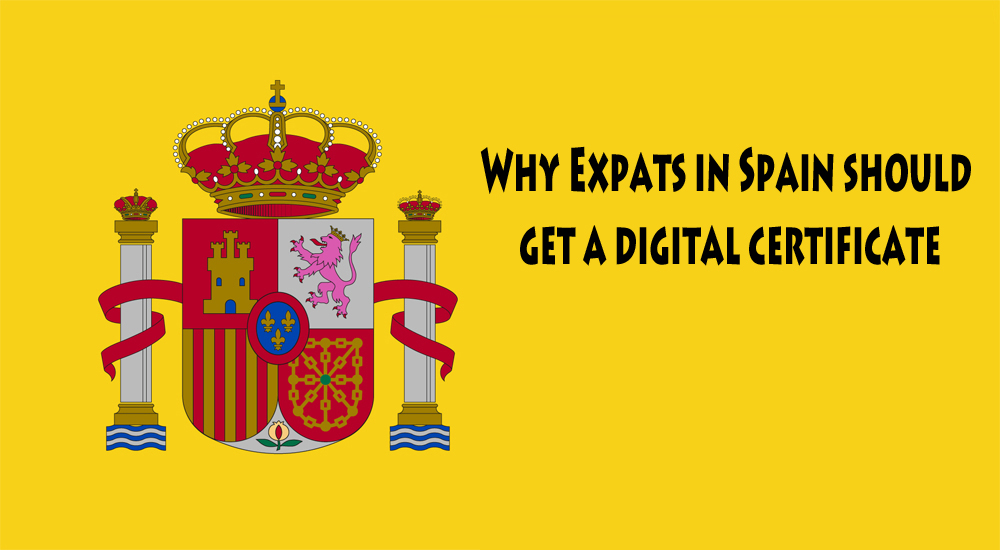A lot of people are unclear about their tax situation when they move to Spain. Do they have to file in Spain? How about tax treaties? Are there exemptions to filing?
I spoke to 4 different Tax advisors, principally because I wanted a 3rd and 4th opinion on an article sent to me by a reader which stated that foreigners do not have to file taxes in Spain. I’ll address that later in this post as well.
The General Rule
Are you a tax resident? If any of the 3 points below describes you then you are, under the general rule, a tax resident of Spain and may have to file taxes in Spain.
- Have you spent more than 183 days in Spain during the calendar year (taking into account temporary absences)?
- Is your main source of income located in Spain?
- Are your spouse or children under 18 years tax residents in Spain?
As I say, if any of the three points above describes you then you will most likely have to file taxes in Spain.
However:
Are you also a tax resident of another country? If one of the above conditions are met it is necessary to check if, according to the internal Tax Law of another country, that person is considered a tax resident in that country as well. If this is the case, and only if both countries are considering the individual a tax resident in accordance to their own rules, the Double tax Treaty signed between the countries must be consulted to settle the tiebreaker rules.
I explain all that below.
Exclusions under the Double Tax Treaty
What the paragraph above means is that you might be considered a tax resident in two countries. If that is the case, there are exclusions in the Double tax treaty between countries that may exclude you having to file taxes in Spain.
Thanks to Almudena Soler at B Law & Tax in Madrid for breaking that down for us (below)
Canada and Spain have these rules in article 4 of the Tax Treaty:
“(…) he shall be deemed to be a resident of the Contracting State in which he has a permanent home available to him.
If he has a permanent home available to him in both Contracting States, he shall be deemed to be a resident of the Contracting State with which his personal and economic relations are closest (hereinafter referred to as his “center of vital interests”);
if the Contracting State in which he has his centre of vital interests cannot be determined, or if he has not a permanent home available to him in either Contracting State, he shall be deemed to be a resident of the Contracting State in which he has an habitual abode;
if he has an habitual abode in both Contracting States or in neither of them, he shall be deemed to be a resident of the Contracting State of which he is a national;
if he is a national of both Contracting States or of neither of them, the competent authorities of the Contracting States shall settle the question by mutual agreement (…)”.
Therefore, the conflict of residence will be solved by applying these rules. If by applying these rules the person is finally a tax resident in Canada, it is important to have a tax residence certificate of Canada (issued in the sense of the Tax Treaty) as well as a tax return filed in Canada including worldwide income.
The USA and Spain have the same Tax Treaty clause in basically the same language:
“(…) Where by reason of the provisions of paragraph 1, an individual is a resident of both Contracting States, then his status shall be determined as follows:
(a) he shall be deemed to be a resident of the State in which he has a permanent home available to him; if he has a permanent home available to him in both States, he shall be deemed to be a resident of the State with which his personal and economic relations are closer (center of vital interests);
(b) if the State in which he has his center of vital interests cannot be determined, or if he does not have a permanent home available to him in either State, he shall be deemed to be a resident of the State in which he has an habitual abode;
(c) if he has an habitual abode in both States or in neither of them, he shall be deemed to be a resident of the State of which he is a national;
(d) if he is a national of both States or of neither of them, the competent authorities of the Contracting States shall settle the question by mutual agreement (…)”
Again, if the above tiebreaker rules stipulate that you are a tax resident of the USA (and not of Spain) it is important to have a tax residence certificate of the USA.
Definition of a permanent home (again, thanks to Almudena who spelled it out for us)
The permanent home is a house that you have available and with an intention of remaining for a long time. It does not have to be an owned house, it certainly can be rented. A hotel for example would not be considered as a permanent home, but a house rented via Airbnb if it is rented for a few months it could be a permanent home.
If you do not have a house in Canada (owned or rented) you do not have a permanent home there, while in Spain you are renting an apartment so you have a permanent home. Therefore, although we should analyze the situation more deeply, it is highly probable that you are considered a Spanish Tax Resident.
As stated above, if you meet the criteria under the Double Tax treaty, you may not have to file taxes in Spain (if, for example, you have a permanent home in both countries and if your center of vital interests lies in the US/Canada). In that case however, you should get a tax residency certificate from your country so that you can prove to Spanish authorities that you are a tax resident of your home country. My understanding is that you should be proactive about obtaining this certificate because if the Agencia Tributaria contacts you about taxes you have 10 days to prove why you are not filing taxes with them. Since the IRS (in the US) and CRA (in Canada) can take quite a lot of time in producing the tax residency certificate it is best to do it soonest.
In Canada you can contact the CRA (link included). Here is the equivalent for the IRS.
“Paying Double Taxes” as tax residents of 2 countries
Most people won’t qualify for the tax exclusion under the double tax treaty. Most people for example won’t have permanent homes in both Spain and Canada/US. Those people may have to file taxes in both countries.
No panic though. There is a tax treaty so that means you won’t be “paying double taxes”. What you pay in taxes in Canada/US will be deducted from what Spain calculates as tax payable. For Canadians that may not be much since Canadian tax rates are in the same ballpark as Spanish rates. Americans though may find that they have a balance owing since US rates are lower than Spanish rates.
Why you should consult a (proper) tax specialist
As mentioned, I consulted with 4 different tax advisors.
I few recommendations:
Almudena Soler at B Law & Tax (in Madrid). She answered my questions in writing which I always like. Her email: [email protected]
I also consulted with Mireia Vila Besonias and Meritxell Nadal Bentade at Price Waterhouse Coopers (in Barcelona). We talked on the phone and they was super helpful and essentially confirmed everything Almudena said. Emails: [email protected] and [email protected]
Neither of the above charged me for the consult and they were incredibly helpful with their information and helped me understand our situation better. Everyone has a different tax situation so it’s always best to consult with someone. And one thing I’ve learned filing both personal and corporate taxes in different countries: it’s always best getting someone to do your taxes for you. It’s not something you want to screw around with.
Another tip: get the proper tax advice from reputable firms such as the above. Last week I wrote this post: Is Sovereignman.com a fraud? I wrote that post after a reader sent me an article entitled: “Here is how you can live in Spain and pay no taxes”. The article basically stated that if you are American (or Canadian) that all you need to do is obtain a tax residency certificate from your home country and you’ll never have to worry about ever paying Spanish taxes. As you can see from this post, it is a lot more complicated than that. So get proper tax advice from a reputable firm.
The Spanish Wealth Tax
It’s not something I discussed with either Tax specialists but it is something that I get asked about all the time. “Does Spain tax your wealth and if so how much?”. So I looked into the basics of the Wealth tax.
Yes, Spain taxes your wealth and it starts at 0.2% going up to 3.03% depending on your wealth (with the highest rates in Andalucia). Note however that there is a tax free allowance of 700,000 Euros and a further 300,000 allowance if your primary residence is in Spain. So you are basically excluded from paying the wealth tax on your first 1,000,000 Euros.
Again though, these are the general rules. Consult a tax specialist if the Wealth Tax is something that concerns
Update: As of September 2022, Andalusia has eliminated the Weath Tax. More details here.
Have you had experience with filing taxes in Spain? Love to hear your stories and tips…
Related: Opening a Spanish bank account without an NIE

Related: Why Expats in Spain should get a digital certificate

Related: The best things about living in Spain


Leave a Reply